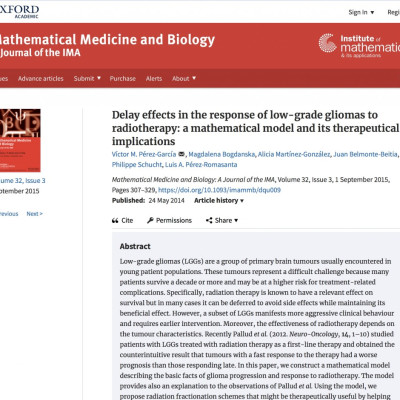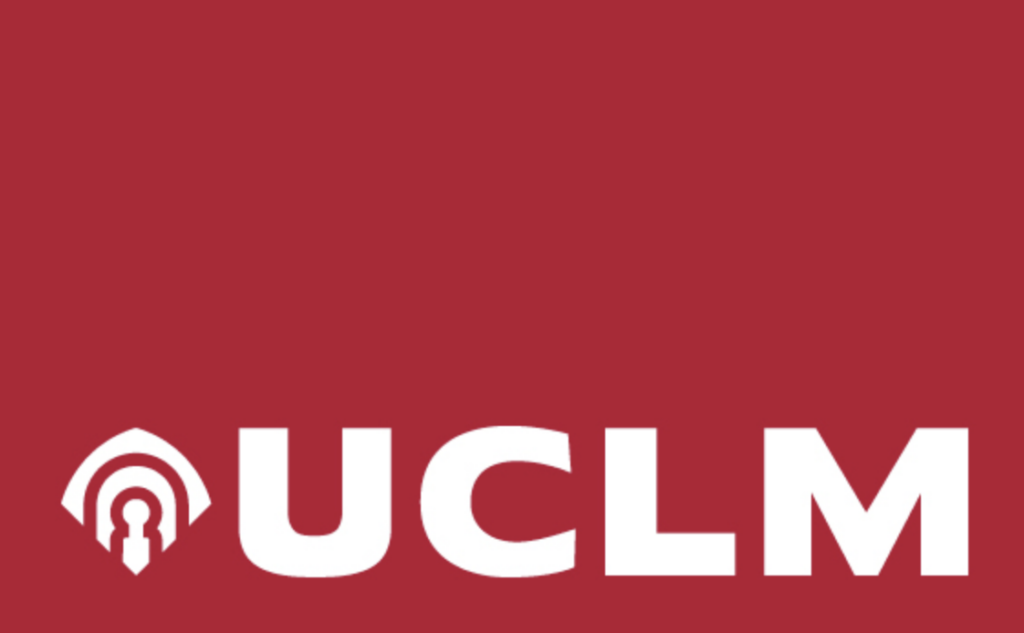Publication
Delay effects in the response of low grade gliomas to radiotherapy: A mathematical model and its therapeutical implications
V.M. Pérez-García, M. Bogdanska, A. Martínez-González, J. Belmonte, P. Shucht, L.A. Pérez-Romasanta
Mathematical Medicine and Biology 32, 307-329 (2015)
MOLAB authors
Abstract
Low grade gliomas (LGGs) are a heterogeneous group of neoplasms usually encountered in young patient populations. These tumors represent a unique challenge because most patients will survive a decade or more and may be at a higher risk for treatment-related complications. Radiation therapy is known to have a relevant effect on the survival time and can typically be deferred to avoid side effects while maintaining its benefitial effect. Clinical observations over the years have identified a subset of low-grade gliomas that tend to manifest more aggressive clinical behavior and require earlier, more aggressive intervention. Recently [Pallud et al., Neuro-oncology, 14(4):1-10, 2012], found that the subgroup of LGGs with a better initial response to radiation therapy have a worse prognosis than a second subgroup including those responding late, a counterintuitive result. In this paper we construct a mathematical model of tumor progression incorporating the basic facts of glioma progression and response to therapy. The model provides an explanation to the observations of Pallud et al. and is also used to suggest novel radiation fractionations that might be therapeutically useful.















